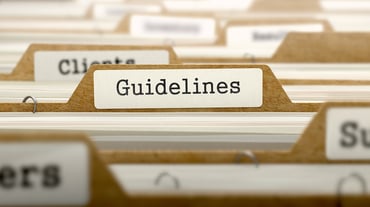For those new to online banking: click here to get started.
Ever wanted to switch financial institutions but didn’t know where to begin? If so, you’re not alone. Many financial experts say the only reason people stick with financial institutions is because the prospect of changing financial institutions is too intimidating.
That’s where this guide comes in. We’ve made the process as easy as possible by answering beginner’s questions on how to switch banks, laying out all the steps in an easy-to-follow order, and even including a free downloadable guide that will make switching banks (and switching from a bank to a credit union) as painless as possible.
While most people stay with a financial institution because the idea of switching bank accounts is too daunting, there are a lot of good reasons to change your financial institution. Here’s when to switch banks:
Your bank is charging fees that other financial institutions don’t
Another financial institution offers better interest rates
You’ve moved and want a financial institution that is closer to your home or work
Another financial institution offers services yours doesn’t
You need a financial institution with a larger network of ATMs
The customer service at your current financial institution is poor
One of the hardest parts of switching financial institutions is figuring out how to find a new bank. You’ll want to research your options thoroughly, otherwise you’ll get through the process only to discover the new financial institution suits you even less than your old one.
 Look for a financial institution with a convenient branch location by your home or work, as well as one that offers virtual appointments. You should be able to meet with a representative without having to drive across town.
Look for a financial institution with a convenient branch location by your home or work, as well as one that offers virtual appointments. You should be able to meet with a representative without having to drive across town.One of the biggest reasons people hesitate to switch financial institutions is fear—fear that their paycheck direct deposit won’t get transferred, fear that they’ll forget to set up automatic bill payment for an important expense or even fear that they might make mistakes when switching banks that will lead to a call from a collections company.
Fortunately, you can eliminate a lot of that worry by taking a few simple steps before you switch banks:
You can use a switch kit, like the free downloadable switch kit First Alliance Credit Union has in our resource center, to help with this process.
Now that you’ve selected a new credit union or bank and taken the time to get organized, you’re finally ready to transfer accounts.

Your best bet is having cash on hand or a physical check to deposit into your new account, but you can also electronically transfer the funds from your old account
Make sure the amount you transfer into your new account is enough to meet the minimum balance requirement
After you’ve made your first deposit, set up a link between your old financial institution and your new one to make transferring money easier
How long does switching accounts take? While you can complete the process in a day or two, you’ll want to run your accounts in tandem for a couple months to make sure your automatic bill payments have transferred over to your new account. Once you’re sure your payments and direct deposits are set up properly, you can finally say goodbye to your old bank accounts. Figuring out how to close a bank account isn’t difficult, but you will want to handle the process carefully to make sure you don’t miss anything.
Look at whether your new financial institution offers a bank account switch kit. Some financial institutions provide this resource to help you transfer your money, open your accounts, set-up any automated deposits, and close accounts with your old bank. It’s makes the whole process easier, and it’s worth pointing out that you can download the First Alliance Credit Union switch kit for free at our resource center.
You don’t have to close your old account. While you should keep your old bank account open for at least a month to make sure all your direct deposits and automatic bill payments are running smoothly, you don’t have to close it if you don’t want to. Many people wonder how many bank accounts they should have, and the answer is “as many as you need.” If your old bank account has a benefit your new one doesn’t, you should keep it open—just make sure you don’t have to pay any unnecessary fees to keep your old account active.
Prioritize your transactions. If you have bills that are coming up while you're switching, it may be easiest to switch those after they debit from your existing account. You can use this as an opportunity to make sure your accounts are all correctly set up at your new credit union or bank. Use the list you created to get organized in the first step to prioritize which accounts are being transferred and when.
Switching financial institutions won’t affect your credit score. One of the biggest questions people have when switching credit unions is “Does switching bank accounts affect my credit score?” and the answer is “No.” The only reason your credit score might decrease while switching financial institutions is if you overlook a bill that goes into collections, and you can easily avoid that by planning ahead and keeping both old and new accounts running concurrently.
Ready to make a seamless switch to First Alliance Credit Union? Complete the form below to access your free switch kit. We can't wait to help you experience the credit union difference!

© 2018 - 2023 First Alliance Credit Union | 501 16th St. SE Rochester, MN 55904 | (507) 288-0330
Privacy Policy | Routing Number: 291975481
Affiliate Site Disclaimer: Our website privacy and security policies only provide protection via the domains owned and operated by the credit union: firstalliancecu.com and resources.firstalliancecu.com. By accessing any linked website not hosted on the listed domains you will be leaving our website and entering an affiliate site which is hosted and controlled by another party. Please be advised that you will no longer be subject to, or under the protection of, the privacy and security policies of our website. We encourage you to read and evaluate the privacy and security policies of the website which you are entering, which may be different than those of ours. Inclusion of any linked website on our site does not imply approval or endorsement of the linked website by us. This remains true even where the linked site appears within the parameters or window/frame of our site. We are not responsible for practices employed by websites linked to or from our website, nor the information, content, accuracy, or opinions expressed in such websites, and such websites are not investigated, monitored or checked for accuracy or completeness by us, nor do we maintain any editorial or other control over third-party websites. Your browsing and interaction on any other website, including websites which have a link to our site, is subject to that website's own rules and policies. If you decide to leave our website and access any third-party websites, you do so solely at your own risk.
In accordance with federal law and U.S. Department of the Treasury policy, this institution is prohibited from discriminating based on race, color, national origin, sex, age, or disability. Submit a complaint of discrimination, by mail to U.S. Department of the Treasury, Office of Civil Rights and Equal Employment Opportunity , 1500 Pennsylvania Ave. N.W., Washington, D.C. 20220, (202) 622-1160 (phone), (202) 622-0367 (fax), or email crcomplaints@treasury.gov.